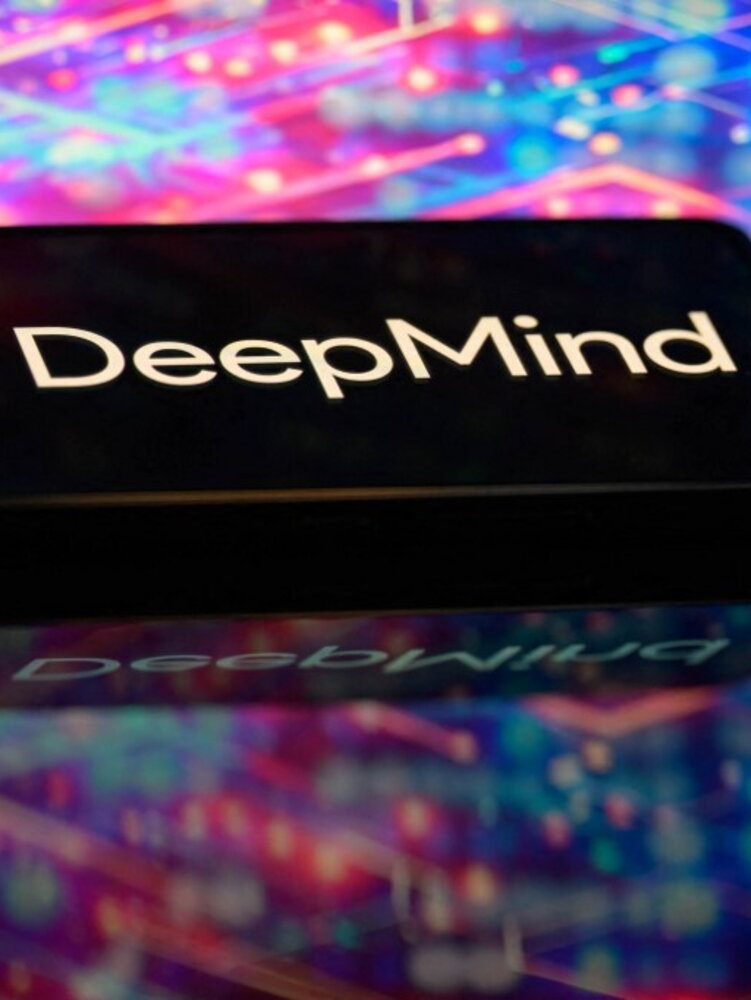There is an increasingly deeper connection between science and artificial intelligence. This is underlined by Google which, in a dedicated blog post, explains how AI today represents one of the engines that allows scientific studies to make progress, after decades of slowdowns. The article summarizes 9 examples that demonstrate how, to all intents and purposes, we are immersed in a new era of discoveries and improvements. And it’s also a way to learn about Google’s latest projects in AI. It is a summary of findings from the AI for Science Forum, organized by Google DeepMind and the Royal Society, which brought together the scientific community, policymakers and industry leaders to explore the transformative potential of AI in driving discovery science, and address the world’s most urgent challenges.
Predict the structure of proteins
In 2022, Google DeepMind managed to do this thanks to its AlphaFold 2 model. Previously, determining the 3D structure of a single protein typically took a year or more but this new model can predict these shapes with remarkable precision in a few minutes. Publishing protein structure predictions in a free database has allowed scientists around the world to accelerate their studies in areas such as developing new drugs, combating antibiotic resistance and tackling plastic pollution. The next step, which could be achieved by AlphaFold 3, is to predict the structure and interaction of all molecules of life.
Mapping the brain at an unprecedented level
Google has teamed up with others, including Harvard’s Lichtman Lab, to map a small piece of the human brain at a previously unprecedented level of detail. This project, published in 2024, revealed never-before-seen structures within the brain. And the full dataset, including AI-generated annotations for each cell, has been made available to the public to speed up the research.
Predicting floods (and saving lives)
In 2018, researchers succeeded in developing an artificial intelligence model that can reliably predict extreme river events in undammed river basins. All up to five days in advance, with a reliability equal to or greater than that of the so-called nowcasts (zero-day lead time). In 2024, Google Research expanded coverage to 100 countries and 700 million people around the world and improved its models to deliver the same accuracy seven days earlier than the previous model.
Identify wild fires earlier to help firefighters
Wildfires are taking a toll on communities around the world amid increasingly hotter and drier climates. In 2024, Google Research partnered with the US Forest Service to develop FireSat, an artificial intelligence model and new global satellite constellation designed specifically to detect and track classroom-sized fires by providing high-resolution imagery. resolution within 20 minutes.
Read the weather
In 2023, Google DeepMind launched and made available the GraphCast model code, a machine learning research model that aims to predict weather conditions up to 10 days ahead, more accurately and much faster than the industry standard weather simulation (HRES). GraphCast also identifies cyclone paths (and associated risks, such as flooding).
Improve mathematical reasoning
AI has always struggled with complex mathematics due to a lack of data and reasoning capabilities. In 2024, Google DeepMind announced AlphaGeometry, an artificial intelligence system capable of solving complex geometry problems. The next model trained by Gemini, AlphaGeometry 2, was then combined with a new model, AlphaProof, and together they solved 83% of all historic International Mathematical Olympiad (IMO) geometry problems of the last 25 years.
Using quantum computing in chemistry
Google researchers teamed up with UC Berkeley and Columbia University to run the largest chemical simulations ever done on a quantum computer. The results, published in 2022, were not only competitive with classical methods, but also did not require the onerous error mitigation typically associated with quantum computing. The ability to conduct these simulations will offer even more accurate predictions of chemical reactivity and kinetics.
Advances in materials science
In 2023, Google DeepMind also announced Graph Networks for Materials Exploration (GNoME), a new tool, based on artificial intelligence, which has already discovered 380,000 materials stable at low temperatures, according to the latest simulations. At a time when the world is looking for new approaches to energy, processing power and materials science, this work could pave the way for better and innovative solar cells, batteries and potential superconductors.

coactuem.ub.edu
pragma123 | altahanley
Link Slot Gacor: Pilihan Utama Anda untuk Pengalaman Slot Online – Tumi123
One88: The Ultimate Site for Online Gambling – jeroenschillewaert
Mundocraftmods | Business & Services – Bookmark Golden
Menjelajahi LIVE DRAW SDY: Panduan Lengkap Lotere Online – Mega188
Level Up at One88: Winning Tips and Tricks – smalljudaica
Member – HP Large Format Knowledge Center
nenaduran, Author at Barratts shoes
Peacegen
| elephant journal
Raih Kemenangan Besar dengan Link Slot Gacor: Pilihan Terbaik di Indonesia – Casino Club
andracorona(andracorona)のプロジェクト – CAMPFIRE (キャンプファイヤー)
Link Livesport88: Panduan Lengkap untuk Pemula – Blog For Businesses
Itnoticiaska | Other – Aaj Kal Trend
proarti Artists Angel
Menang di Slot Gacor: Memahami Dasar-Dasar RTP – Online Law Blog
TA88 Unveiled: Discover Exciting New Games and Features – Whimsy Writes
Profile of shainachilds
Menjelajahi Situs Togel: Membuka Pasar Togel Terbesar – Trusted Global Network – SpectorDVM
cedamconsultores cedamconsultores | asoprs
shararhodes | Users | joinDOTA.com
Certificate verification problem detected
A Beginner’s Guide to Betting on One88’s Sportsbook – Pragmatic Games
Discover XO88: The Best Online Gaming Adventure – Dewi788
The Importance of RNG in TA88: Ensuring Fairness – huohuvip526
UK88: Join the Winning Streak for Online Gambling Success – Whimsy Writes
PQRD –
Proteros – Cambridge, MA
darlenecampbell (darlenecampbell) on AVA 360 Turkish | Türk Eğlence Topluluğu